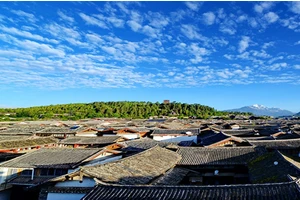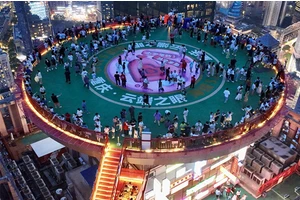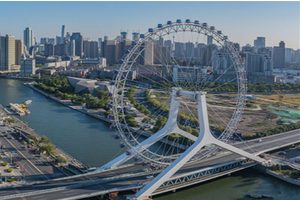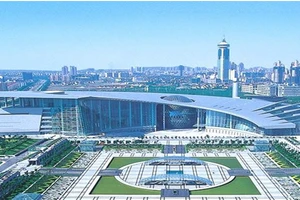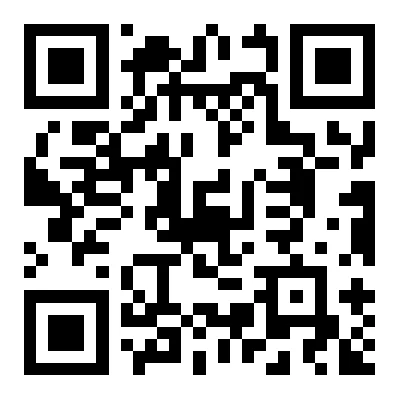Smart tourism research
In promoting the construction of tourism informatization, whether to mention "smart tourism" or "smart tourism" is different, although people have different opinions. However, from the level of government departments, as a new format of an industry and a national systematic project related to the direction of industrial development, there should be only one standardized and unified terminology to facilitate standardized construction and management. Nowadays, "smart tourism" is a hot topic. In July, the National Tourism Administration proposed to initially realize "smart tourism" in China in 10 years, build a number of "smart cities", "smart scenic spots" and "smart hotels", and build a "national smart tourism service center" in Zhenjiang, Jiangsu. Since then, "smart tourism" has been written into the tourism documents of many local governments and the "Twelfth Five-Year" tourism development plans of many provinces and cities.
What is "smart tourism"? To sum up many statements, its contents are as follows: at the level of tourism consumption, it has the functions of electronic tour guide, navigation, tour guide, shopping guide and complaint, and all aspects of tourism consumption can be solved through the network, eliminating all kinds of cumbersome procedures and saving much energy and time; At the level of tourism management, digital control can be implemented from market research, product design, marketing, reception service, customer management, financial management, manpower deployment, material planning and safety monitoring. At the level of tourism management, from the aspects of investigation and statistics, publicity and promotion, government affairs release, industry management and market monitoring, etc., the digitalization of government affairs can be achieved by using the network. In fact, it is called the basic content of "smart tourism", which appeared in the State Council's Opinions on Accelerating the Development of Tourism at the end of 2009: "Taking informationization as the main way to improve the efficiency of tourism services. Actively carry out online tourism services, online marketing, online booking and online payment, make full use of social resources to build tourism data centers and call centers, and comprehensively improve the tourism information service level of tourism enterprises, scenic spots and key tourist cities. " The so-called "smart tourism" is essentially to comprehensively improve the informationization level of tourism.
"Smart tourism" has made "China's tourism industry stride into an intelligent era from an information age and a digital age". In my opinion, "intelligence" is still included in the process of "informatization" and "digitalization", or an extension of "informatization" and "digitalization", and there is no distinction between this era and that era. The reason why "smart tourism" is so hot is to pick up the wisdom of an American IT company. In 2009, IBM put forward the strategic concept of SmartPlanet and translated it into "Smart Earth", from which SmartCity ("Smart City"), SmartTourism ("Smart Tourism") and so on were derived. The "smart earth" proposed by the company is to embed electronic sensors into various objects such as power grids, railways, bridges, tunnels, highways, buildings, water supply systems, dams, oil and gas pipelines, etc., and be universally connected to form the "Internet of Things", and then integrate the "Internet of Things" with the existing Internet to realize the integration of human society and physical systems. In IBM's propaganda, "Smart Earth" covers a wide range of fields, involving people's livelihood infrastructure and national strategy, and even the military field.
On May 10th, 2012, Beijing Smart Tourism Action Plan Outline Release and Work Deployment Conference was held in Beijing Changfugong Hotel. At the meeting, the Beijing Tourism Development Committee officially issued the Outline of Beijing Smart Tourism Action Plan (2012-2015) and four construction norms of smart scenic spots, smart hotels, smart travel agencies and smart tourism villages. Convened by the Beijing Tourism Development Committee, the Beijing Smart Tourism Alliance, which was jointly initiated by the leading units of Beijing's tourism industry, relevant scientific and technological enterprises and scientific research institutions, was also announced.
Big Data Analysis to Develop Smart Tourism
A few days ago, the world first stop of "Smart City Challenge" was held in Huizhou. Focusing on the topic of "Smart Tourism", after three weeks of on-the-spot investigation and research, the project made positive suggestions for Huizhou to use big data analysis and "internet plus" to develop smart tourism.
Recently, the State Council issued "Several Opinions on Further Promoting Tourism Investment and Consumption" (hereinafter referred to as "Opinions"), and deployed reform and innovation to promote tourism investment and consumption. Among them, it is clear that we should implement tourism investment and consumption promotion plans, actively develop "internet plus tourism", open up a new tourism consumption market and cultivate new consumption hotspots.
"As a pilot city for the construction of smart cities in China, if Huizhou can further use new technologies such as the Internet, it will effectively promote smart tourism to become a new hot spot for economic growth." Huang Xihua, director of Huizhou Tourism Bureau, said.
In this regard, Hong Xiaozhou, a member of the expert group from IBM and the head of smart city strategy and analysis consulting, said that tourists in the Internet era have changed from passive to active, and suggested that Huizhou pay attention to the balance among government, enterprises, communities and tourists, and build a tourism data cloud from the perspective of tourists, create a 360-degree tourist view analysis and prediction, and build a "tourism+"ecosystem.
Tourism shows four major trends.
With the development of economy and the encouragement of consumption in recent years, tourism has great potential in the future. According to experts' analysis, combined with the ubiquitous Internet environment and information revolution, the development of tourism presents four major trends.
"First of all, tourists in the Internet age have changed from passive to active. Travelers have changed from relying on travel agencies in the past to relying on the internet for self-help travel, and fully obtain the information of tourist destinations to arrange their own itinerary. Therefore, from the perspective of tourists, we should think about them and improve the quality of perception and experience. " Kaaren Koomen, a project team expert, said.
At the same time, in view of the tourism revolution driven by big data, through the in-depth mining of tourism data such as review data and consumption data, tourists can accurately guide their own consumption behavior, and at the same time, scenic spots can better understand tourists. This also makes smart tourism a new trend, and the wisdom of scenic spots has become the focus.
In addition, "tourism+"has become a new direction. We should give full play to the driving force, integration ability, catalysis and integration of tourism, provide a platform for the development of related industries and businesses, form a new format, enhance its development level and comprehensive value, and create a harmonious and win-win tourism ecosystem.
It is understood that as the largest public welfare plan invested by IBM in the world, "Smart City Challenge" selects cities with smart development and vitality to cooperate with it every year on a global scale, and provides planning, management and technical advice for the selected cities in the fields of economic development, industrial transformation, culture and education through expert research. In May this year, Huizhou stood out from more than 100 cities around the world and was successfully selected for this project, becoming the fifth China city selected for IBM's "Smart City Challenge" after Chengdu, Nanjing, Foshan and Jinan.
Big data analysis aided decision-making
A few days ago, the State Council issued the "Action Plan for Promoting the Development of Big Data", pointing out that big data has become a new driving force for economic transformation and development, which can significantly improve the level and efficiency of economic operation, continuously stimulate business model innovation, and constantly promote new formats. At the same time, big data has also become a new way to improve government governance.
Susan Schreitmueller, a cloud computing expert, agrees, "In order to better understand tourists and propose targeted and accurate solutions to optimize the quality of experience, big data resources under the background of the Internet should be valued."
Taking Huizhou as an example, the relevant data show that only 15% of the above information is available, 30% of the data exists but cannot be shared, and as much as 55% of the data cannot be obtained. "Big data collection and analysis should be used to enhance customer insight, from visiting attractions, staying time, social media expression to various consumption, etc., and a 360-degree view of tourists should be established to better understand them."
For example, she said, "Based on descriptive analysis, we can find that the number of tourists who came here in August this year has increased. Why? Then make a predictive analysis to find out whether the number of tourists coming here will increase or decrease in August next year, and how much; Finally, through the normative analysis, it is concluded that it is necessary to increase the parking space by 22%. "
The above is the related content of big data analysis and development of smart tourism shared by Xiaobian. For more information, you can pay attention to global ivy to share more dry goods.


